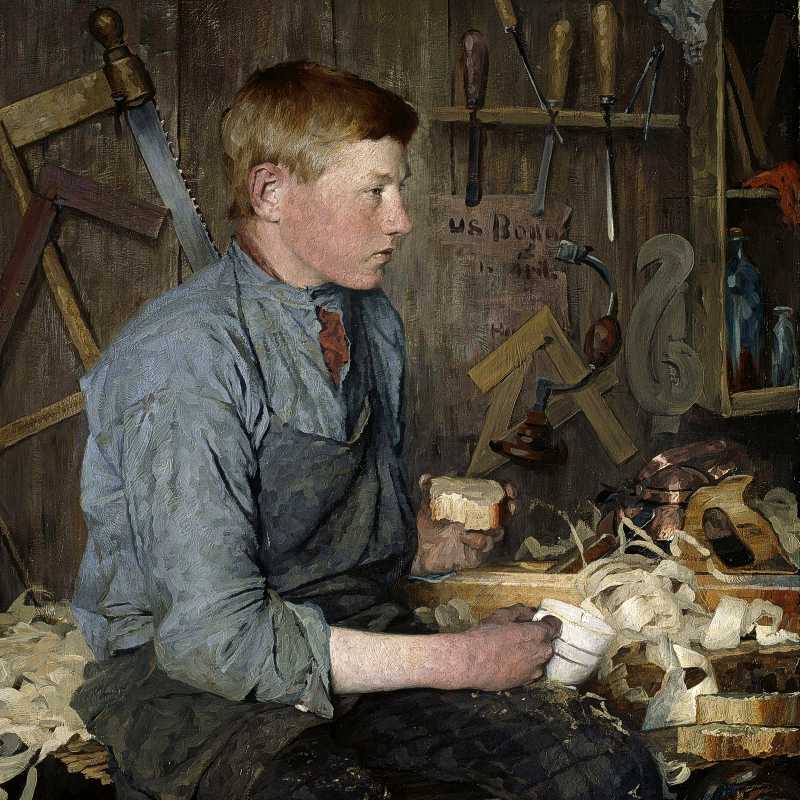
“The Young Carpenter,” oil on canvas, by Fredrik Kolsto, 1886.
On Saturdays, our father loaded
his disappointment of daughters
into the back of the Chevy
and drove to the hardware store,
alleging a need for
glazier’s putty, galvanized screws,
a longer plumbing snake.
What he needed, really,
was to be among men—
men who smelled of sawdust and turpentine,
who worked with cold-cracked hands,
who holstered claw hammers
in ready loops on the seams on their pants,
whose talk was as straight and gravity-true
as a plucked plumb-bob line.
While we three plunged our hands
into bins of roofing nails
or collected fanned hands
of paint-chip cards,
he stood, arms akimbo,
rocking from heel to ball,
punctuating loud chatter
with louder guffaws,
fraternizing with men who did not
sit behind desks all week,
aping their spitting, their sweating,
their swearing—
longing to belong.
Our father did not belong,
not there, not anywhere,
not really: he was an outlier who
knew things, recalled things—
an almanac of esoterica.
He could retell Civil War battles
as if he had stood
at the edge of Antietam,
knew the gauges of railroads and guns,
could name the craters of the moon,
the rifts and trenches of seas,
the genus and species of every
native New England tree.
What he did not know
was how to love and be loved
by this churning trilogy of little girls,
this Ezekiel’s Wheel
of elbows and knees,
not devils but not sons,
not damnation but neither
a deliverance from aloneness,
from standing at the edge
of Antietam, day after day,
not a Yankee, not a Rebel,
not dead, not quite alive.
B. Fulton Jennes is Poet Laureate of Ridgefield, CT. Her poems have appeared widely in literary journals and anthologies, and her collection Blinded Birds (Finishing Line Press) received the 2022 International Book Award for a poetry chapbook. Her poem “Glyphs of a Gentle Going” was awarded the 2022 Lascaux Prize.



